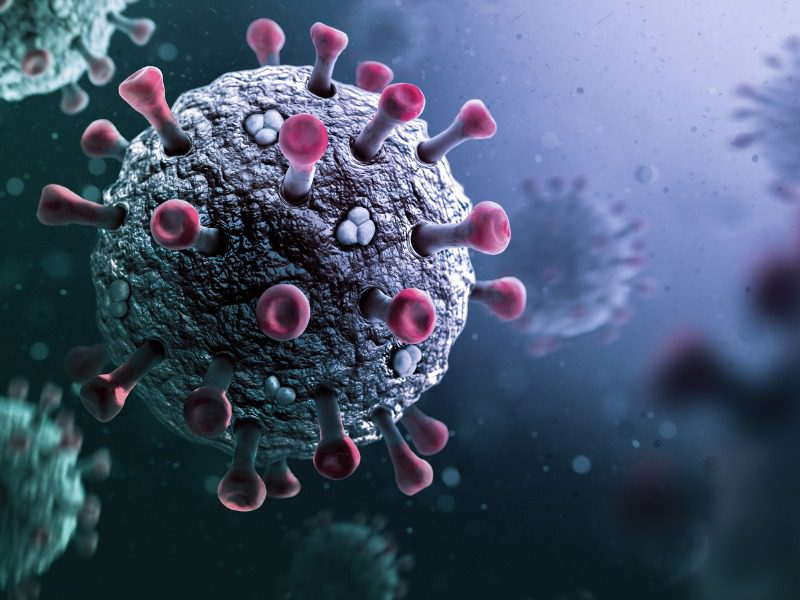Does an immuno-compromised adjuster have to return to field work?

For almost three years, there’s been confusion around COVID-19 protocols. It’s made it hard for people to get on with their daily lives.
An example of how these stresses burden our industry is illustrated in a dilemma faced by a claims adjuster in a regional branch office.
Recently, an immuno-compromised colleague approached the claims adjuster about the new corporate policy eliminating work-from-home options and requiring everyone to return to pre-pandemic work processes, including field investigations and on-site meetings with insureds and claimants.
Later that day, the adjuster overhead a phone conversation from a claimant who said they believe the pandemic is a hoax, will never get vaccinated, and has found someone who’ll provide them with fake proof of vaccination. The adjuster was troubled by the potential impact on others’ safety – in particular, colleagues with compromised immune systems.
Here’s what two experts had to say about dealing with this ethical conundrum:
Greg Smith, president, Crawford & Company (Canada)
Employees should be encouraged to proactively bring health and safety concerns to their supervisors. While employers are doing their best to balance advice from credible medical experts with the personal experiences and feelings of their employees, the anxiety felt by this colleague with the compromised immune system over returning to pre-pandemic working conditions may be more common than we know.
Claims adjusters have been essential workers in the field since the earliest days of the pandemic. The adjuster who overheard the telephone conversation from the claimant should speak to their supervisor and express their concerns. It’s important for the adjuster and supervisor to focus on health and safety issues, despite what personal opinions they might hold about the claimant’s comments and actions.
A key question is whether the claimant’s disclosing they weren’t vaccinated would lead to a different claims-handling process. It seems unlikely that proof of vaccination would be required to proceed with the adjustment of a loss, especially with vaccine requirements being lifted across most sectors of Canada’s economy. But it would be appropriate to notify the adjuster, so they can apply protocols for contact with unvaccinated people, such as conducting screening questionnaires, wearing personal protective equipment, and practicing hand hygiene and social distancing.
The immune-compromised colleague should voice their concerns about the return to pre-pandemic processes. There may be additional precautions they could take, or formal job accommodations could be implemented such as a change in role, safer workspace in the office or a more flexible work-at-home environment.
Jeff Edge, president, senior technical adjuster, Leading Edge Claims Services
Parallels exist between hazards brought on by the pandemic and some of those faced by field adjusters when entering fire, flood or biohazard scenes, as well as structurally damaged buildings and spaces that have been compromised by an occupant’s mental health situation.
If adjusters face situations they believe are unsafe, they must step back, reassess and determine a way to do their job in a way that doesn’t pose health and safety hazards. During the pandemic, they should assume any person they’re meeting could, knowingly or unknowingly, be infected and take the necessary steps – masking, sanitizing hands, not sharing pens, not shaking hands, meeting outdoors if possible, social distancing if it’s necessary to be inside, and sanitizing thoroughly after the meeting.
If a field adjuster’s experiencing a high level of concern for their safety while meeting with clients, they may want to seek training on steps they can take to protect their health. Some field adjusters, particularly independents, have continued to meet with the insured public during the pandemic and have been largely able to do so safely when taking their and others’ safety into consideration and acting accordingly.
Encouraging and accompanying the concerned adjuster on their first outside visit might help them feel comfortable and show them it can be done safely. Or, if the adjuster cannot find a comfort level that allows them to work in the field, it might be necessary to transition them to a different role (temporarily or permanently) where they can perform duties via phone, email or video calls. If that’s the best option, they should approach their human resources department and schedule a discussion.
This article is excerpted from one that appeared in the November issue of Canadian Underwriter. The CIP Society works to bring ethical issues to the forefront and provide learning opportunities that enhance the professional ethics of all insurance professionals. Feature image by iStock.com/loops7



